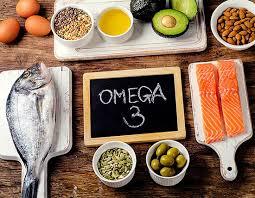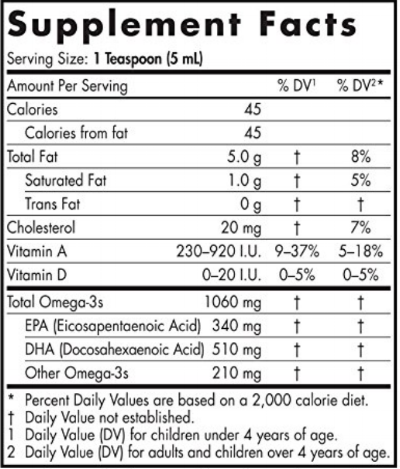
Let's talk about Omega-3s...
Almost everyone who pays attention to their overall health these days has heard of Omega-3's and/or fish oil, and has some idea that they're helpful in combating inflammatory disease, achy joints, etc.
On top of that, most people also are aware that our current diets don't give us nearly enough Omega-3's.
What is a bit more of a mystery to people is that the typical American diet is LOADED with pro-inflammatory Omega-6 fats which appear to contribute to diseases such as heart disease, obesity and diabetes. Unfortunately, omega-6 fats are pretty ubiquitous in the modern American diet. #ThanksVegetableOil

Taking this all in, one can assume that a smart goal is to try and balance out our intake of Omega-3's to Omega-6's by using supplementation and/or eating fish. Its important to note though, that not all fish and/or fish oils are created equal.
BUT FIRST, let's work through some basic information...
- The important Omega-3 fats are called EPA and DHA. DHA seems to have the more potent anti-inflammatory effects. EPA can be converted into DHA though too and seems to block inflammation as well.
- Fish and fish oil crushes flax seed oil. Flax seed oil has high levels of a molecule called ALA and your body can convert ALA into EPA and DHA... but its a very inefficient process with less than 0.5% of the initial ALA forming DHA. So basically you'd have to take a full bottle of flax seed oil each day... thats not a great idea for obvious reasons.
- Dose. Its hard to make a general recommendation on dose, but I'll say this; You can't simply take all the Omega-3's you want and still eat like an asshole. You've got to work on reducing your intake of crappy vegetable oils and limit other high Omega-6 foods (hello walnuts!!). If you do manage to reduce your Omega-6 intake, then you can also take less Omega-3s.
That said, I know some of you will want a general recommendation, so here it is:
~100-200 mg of EPA and DHA (combined) per 10 lbs of body weight.

OK, so how should we supplement this?
Well if you can afford it, buying wild caught fish a couple times a week would be a great start (AKA eat real food). Realistically though, I get that this can be an expensive endeavor so lets work through some supplement options as well.
What should we look for in a supplement?
- Freshness. Omega-3 fats are susceptible to oxidation, which makes them rancid and also taste terrible. Worse news is that a rancid fish oil is pro-inflammatory defeating the whole purpose of supplementation! If you can get a liquid fish oil (versus a capsule) you'll always know if the product has gone off.
- Potency. You want a nice high amount of EPA and DHA out of the total fat content. DHA is the more important of the two.
- Vitamins and bio-availabiity. Fish liver oil (from cod as an example) contains fat-soluble vitamins that are difficult to obtain from other foods and has a better bio-availability due to the confirmation (#sciencedork). The more natural the structure the better.
- Price: Because athletes are broke AF.
Recommendations:
Again, if you can handle a liquid version, then its the way to go as you don't have to pop a ton of pills, its actually more cost-effective and you can guarantee that you're not taking anything thats rancid. This is the brand that I recommend:
If you just can't do the liquids, then pills are the way to go.
So there you have it. Omega-3's are a solid supplement for health and performance. Taken in moderate doses, they've been shown to be incredibly safe, making them an easy recommendation for the general population.
The M2 Certification Series - Coming Soon!
If you want to learn more about nutrition and overall health from a course based on the latest scientific research and findings, then get on the waitlist! The first course in Series is the Gut Biology Course! Let us know you want to be on the list to get first access and early bird pricing!




